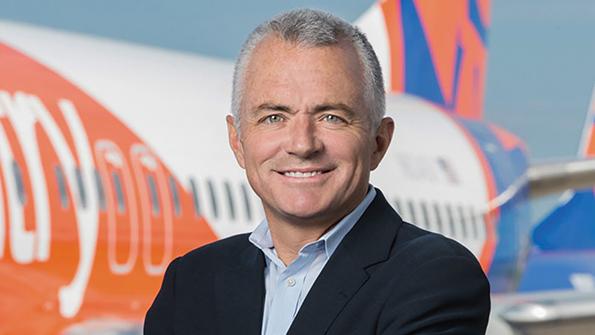
Sun Country Airlines President and Chief Financial Officer Dave Davis discusses the carrier’s aftermarket plans post-pandemic.
What are the key elements of Sun Country’s MRO strategy?
Our general philosophy is to keep in-sourced functions that directly impact the operational performance of the maintenance services in-house. We employ around 100 technicians at our Minneapolis hub to support operations. All of our engine, airframe heavy maintenance and component work is outsourced today.
What are your in-house MRO capabilities?
Almost all of our line maintenance activity is insourced, and we have full capabilities in that area. We can perform activities like landing gear changes and engine swaps as needed.
What is the ratio between insourced and outsourced work?
From a financial perspective, approximately 60% of our maintenance spending is for outsourced activities.
How did the COVID-19 crisis affect your maintenance operation?
Our technicians remained heavily utilized during the pandemic. At the height of the crisis last spring and summer, upward of 50% of our aircraft fleet was parked at times. All aircraft were stored here in Minneapolis, and our technicians handled all of that work. Given our heavy leisure-traffic focus, the recovery started more quickly for us, so all our technicians were needed. The volume of work that was sent to our MRO partners was significantly reduced as aircraft utilization levels declined.
Will adopting an owned over leased aircraft policy alter your maintenance strategy in any way?
Having an owned fleet significantly increases our maintenance flexibility and decreases our costs. Things like stringent lease-return requirements are eliminated, and the scope of maintenance activities can be tailored to our needs. The elimination of maintenance reserve payments generates significant near-term and longer-term benefits. A big area of opportunity for us lies in purchasing green time engines in lieu of performing expensive maintenance overhauls. We are very focused in this area.
What new technologies are you looking at or investing in for the maintenance side of the business?
We are in the process of fully implementing a digital aircraft records system. All our technicians have iPads, and we are moving toward implementing digital strategies that will make the execution of work more efficient. The digital records system was rolled out in the fourth quarter of 2020. We are running a dual recordkeeping for the time being and will transition to a fully digital system soon.
Do you foresee any capacity challenges post-crisis as maintenance demand picks up?
We believe that we have built strong relationships with our vendors. As flying comes back and MRO capacity tightens, we anticipate that we will be able to find the external MRO capacity that we need. Additionally, our program to buy rather than rebuild engines will reduce our requirements.
Are you seeing any shortages of used serviceable materials on certain assets such as engines?
We aren’t seeing any shortages of USM today. We have seen some reductions in pricing but nothing dramatic.
How is Sun Country addressing the challenges related to technicians and skills shortages?
We have a very skilled and experienced group of technicians at Sun Country. We are working to build relationships with local technical schools, and we are considering a technician helper program to offload some of the work from our skilled technicians. The school relationships are informal ones right now, although we are trying to formalize our relationships. We need certified airframe and powerplant mechanics who can support all aspects of our line maintenance operation.
Sun Country Airlines
Headquarters: Minneapolis
History: Sun Country was founded in the summer of 1982, before commencing operations early in the next year. The airline has undergone several ownership changes throughout its history. In 2011, it was bought out of bankruptcy for $34 million by the Davis family, who later sold the business to New York City-based investment fund Apollo Global Management in late 2017. Amazon bought a stake in the carrier in December 2019, and shortly thereafter announced Sun Country would operate some cargo flights for its Amazon Air brand. The first of these took place in May 2020. Sun Country operates 86 passenger routes between destinations in the U.S., Mexico, Central America and the Caribbean. The carrier focuses operations at Dallas-Fort Worth International Airport and McCarran International Airport in Las Vegas.
Fleet: The airline operates a fleet of 31 Boeing 737-family aircraft, consisting mainly of the 737-800 variant. In addition, it operates 12 737-800PCF aircraft on behalf of Amazon Air. Sun Country plans to further grow its fleet to 50 aircraft by the end of 2023.

